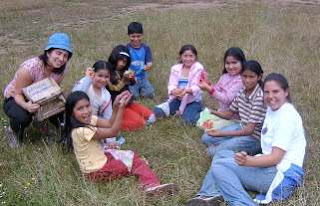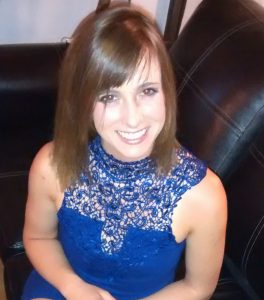 I was drawn to the Fulbright Program because I identified with the program’s character. I am an intellectual. I am a civic participant and volunteer. I am a student. I am a family member and a friend. I represent my university and my community wherever I go. I have a strong sense of who I am, and I realized that the Fulbright U.S. Student Program emphasized the values I hoped to cultivate.
I was drawn to the Fulbright Program because I identified with the program’s character. I am an intellectual. I am a civic participant and volunteer. I am a student. I am a family member and a friend. I represent my university and my community wherever I go. I have a strong sense of who I am, and I realized that the Fulbright U.S. Student Program emphasized the values I hoped to cultivate.
There are a lot of exciting opportunities out there for recent graduates and budding intellectuals. We can apply for scholarships to study at top universities around the world. We can volunteer in places from South America to the South Pacific and everywhere in between. The Fulbright Program, however, captured my imagination with its promise of a unique combination of cultural exchange, community involvement, and intellectual growth. I’m sure all of the programs I considered would have been amazing opportunities, but the Fulbright Program’s goals reflected the kind of experience I hoped to have and the kind of person I aspired to be.
It also helped that the Fulbright Program had a thriving exchange program with Chile, a country in which I had a keen interest. I had studied abroad in Santiago and had written an undergraduate honors thesis on the Chilean education system. In the ten weeks I spent in Chile during my study abroad program in Santiago, I had thrown myself into life with my Chilean host family, my classes, and my research. But the time was too short, and I left feeling like I had so much more to give and to learn.
The Fulbright Program offered a unique opportunity for me to return to Chile and pursue a more in-depth research project while immersing myself in Chilean life. I had studied economics as an undergrad and had always been interested in education. Studying Chile’s education voucher system presented an exciting opportunity to merge these two interests. Because one of the most hotly debated issues in Chile is how to improve educational opportunities for vulnerable students around the country, I chose to focus on the inequality in educational resource distribution among students from different socioeconomic backgrounds. I spent three days a week doing quantitative research at a university and two days observing and volunteering in schools throughout Santiago, and later in my project, throughout Chile.
My research was a primary reason for my stay in Chile, but I was heartened to know that spending time with my host family, talking with students and teachers during my research project, volunteering with rural children, and competing on a swim team were all considered respectable and worthwhile. The Fulbright Program valued the parts of my experience I valued – everything.
The Fulbright Program is an intense commitment of time and energy. A successful experience requires hard work, perseverance, patience, flexibility, and a sense of humor. But it is also an experience that will help you evolve into the kind of intellectual, civic participant, volunteer, student, family member, friend and community ambassador you hope to become. If you’re anything like me, I can promise you that the Fulbright experience will change your life.
Photo: Katie Ladewski (right) with students in rural Chile, 2006.



